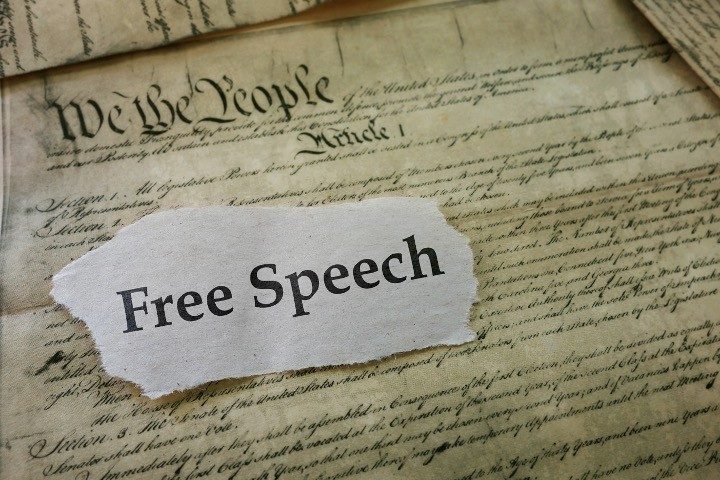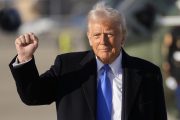
Is the title of this article “misinformation”? Governor Tim Walz (D-Minn.) certainly would say so. Many observers say the opposite, though, with Walz having stated in a recently unearthed interview that there’s “no guarantee to free speech on misinformation or hate speech.” His defenders would aver here, however, “That’s taken out of context!”
That’s the rub, too, isn’t it?
Ferreting out the Truth is often difficult. And this is precisely why we have a First Amendment that does not prohibit “hate speech” or misinformation: What’s “hate speech” now may be considered constructive criticism later.
And today’s “misinformation” may be tomorrow’s axiomatic observation.
No, I’m not getting relativistic — just realistic.
Tim Walz’s History
Walz, Kamala Harris’s choice for vice-presidential running mate, has proven intensely controversial. He has been dubbed “Tampon Tim” for signing a bill requiring “menstrual products” in boys’ school bathrooms, has said that one “person’s socialism is another person’s neighborliness,” has required Minnesota teachers to embrace left-wing ideology, has had “stolen valor” accusations leveled against him by members of his own military battalion, has issued an order ensuring children can get “irreversible transgender surgeries,” and has signed a bill allowing “unlimited abortion.” And now, critics may assert that if Walz has his way, you may not even be allowed to use your First Amendment rights to argue that all of the preceding charges are valid.
At issue are comments Walz made during a December 2022 appearance on MSNBC’s The Reidout. Here’s what the governor said, in context, courtesy of constitutional law professor Eugene Volokh:
[MARIA TERESA KUMAR, MNSBC HOST]: … I want to talk about what you just mentioned about misinformation, because, oftentimes before, in previous political chapters, disinformation, telling people [where] to vote the wrong way, that was kind of—these were called—considered shenanigans.
But it’s becoming more ominous. Can you talk a little bit about that…
WALZ: Oh, yes.
KUMAR: … and what you will do to ensure that there are penalties for that?
WALZ: Yes.
Years ago, it was the little things, telling people to vote the day after the election. And we kind of brushed them off. Now we know it’s intimidation at the ballot box. It’s undermining the idea that mail-in ballots aren’t legal.
I think we need to push back on this. There’s no guarantee to free speech on misinformation or hate speech, and especially around our democracy. Tell the truth, where the voting places are, who can vote, who’s able to be there….
Most Americans would agree that no one should lie about simple facts concerning times and places (one shouldn’t lie about anything). And, after a long analysis, Volokh concedes that based on court rulings, Walz may be correct about First Amendment protections not applying to the narrow matter of objective lies concerning polling place locations and voter eligibility.
The problem is, Walz didn’t say just that.
He didn’t say that people peddling that particular misinformation could be charged with election interference (which might be problematic itself). Instead, he made the broader statement that there’s “no guarantee to free speech on misinformation or hate speech.” This presents two concerns:
Are Misinformation and “Hate Speech” Protected?
It reinforces the mistaken First Amendment conception at issue, which many young people have already fallen victim to.
Second, rather than being a slip of the tongue, it likely reflects Walz’s heart on the matter. After all, had he passion for free speech, he surely would’ve taken pains to clarify that prohibiting election-lie shenanigans is an extremely narrow First Amendment carve-out (under his philosophy). What we care about, we tend to emphasize.
Walz waltzed into error in what he said, too. “The Supreme Court has made clear that there is no ‘hate speech’ exception to the First Amendment (and see here for more details),” Volokh points out — contrary to what young people have been conditioned to believe in today’s very lacking schools.
As for “misinformation,” while there are exceptions — libel, false statements to government investigators, etc. — “sometimes even deliberate lies are constitutionally protected,” Volokh emphasizes. Is this not obvious?
If telling lies were legally actionable, virtually every politician would have to be brought up on charges!
The problem with empowering the state to “punish lies” should be plain. Were government God (as some seem to believe) — meaning, inerrant, omniscient, and all good — we could trust it to be a Ministry of Truth. (God is Truth, do note.) God would know what’s true and what isn’t, who’s telling the Truth, and who’s peddling untruths or actual lies (a lie is an untruth peddled while knowing it’s untrue). Unfortunately, though, government, and the establishment generally, more closely reflect a different supernatural entity.
Lies My Government Told Me
Just consider Lies My Government Told Me. There was the censorship of accurate Covid prescriptions during the “pandemic,” the claim the Hunter Biden laptop was “Russian disinfo,” the Trump/Russia-collusion con, the Trump “fine people” hoax (mind you, the latter is a situation where Trump’s words have been presented out of context, repeatedly, for ages), lies about the Iran nuclear deal, and damnable lies about our various wars, just to name a handful.
Would you buy a used Ministry of Truth from these people? Would you trust our lying politicians to police lies?
As for hate speech, what do you call continually labeling people “Nazis,” “racists,” “fascists,” and “threats to democracy”? Some on the Left would call it issuing a legitimate warning (even though it resulted in an assassination attempt). But that’s the point, isn’t it?
There very well may be fascists among us, about whom alarms should be sounded. But there are debates over who they are, partially because of demagoguery but also due to honest disagreements. Where are the angels among us whom you would empower, granting police force, to determine the What’s What of Truth and the Who’s Who of Liars? Do you want to sit before a speech tribunal and have your words judged by a panel appointed by the worst among us — our politicians?
Surely, not even Tim Walz wants this for himself. And anyone who’d want it for others doesn’t belong anywhere near the levers of power.



